
May 22
1813 Birth: Richard Wagner in Leipzig, Germany:
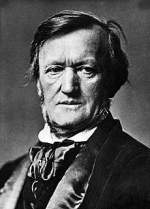
While Richard Wagner lived decades before the birth of Nazism, his influence on the National Socialist movement and especially on its leader was enormous. In a tractate, Das Judenthum in der Musik, first published in 1850 under a pseudonym in the Neue Zeitschrift für Musik, Wagner wrote that Jewish music is bereft of all expression, characterized by coldness and indifference, triviality and nonsense. The Jew, he claimed, has no true passion to impel him to artistic creation. The Jewish composer, according to Wagner, makes a confused heap of the forms and styles of all ages and masters. To admit a Jew into the world of art results in pernicious consequences. In Deutsche Kunst und Deutsche Politik, Wagner spoke of the "harmful influence of Jewry on the morality of the nation," adding that the subversive power of Jewry stands in contrast to the German psyche. All these ideas, together with the ultranationalistic character of his operas, especially "The Ring," provided a fertile feeding ground for Nazi ideology and cultural conception. [For further information, click here.]
1859 Sir Arthur Conan Doyle is born:

Doyle was born in Scotland and studied medicine at the University of Edinburgh, where he met Dr. Joseph Bell, a teacher with extraordinary deductive reasoning power. Bell partly inspired Doyle's character Sherlock Holmes years later. [For further details, Click here. Note: More people in the UK think that Sherlock Holmes was a real person than believe that Winston Churchill was.—Ed]
1883 Marriage: Alois Hitler and Franziska 'Fanni' Matzelberger:

Alois II, Adolf Hitler's half-brother, is legitimized soon after the marriage, relieving him of his mother's slightly comical-sounding maiden name (Matzelberger). Two months after the wedding, Adolf Hitler's half-sister, Angela, will be born. [For further details, Click here.]
1904 Adolf Hitler: Confirmation at Linz Cathedral:
Fifteen-year-old Adolf is sponsored by one of Alois' pallbearers—former customs house colleague, Emmanuel Lugert—from whom Adolf refuses the offer of a watch as a confirmation gift, declaring that he already owns two watches. Instead, Lugert presents him with a prayer-book, as well as the passbook to a bank savings account with a small balance. Lugert will later recall Hitler's ill-tempered behavior during and after the ceremony, declaring that he had never, before or since, sponsored such an ungrateful boy.
[See: Was Adolf Hitler a Christian?]The later German Fuehrer's childhood anecdotes, in the marginally reliable Hitler's Table Talk, as with much of Hitler's written and spoken words, are to be taken with many selective grains of salt. With this in mind, the following paraphrased excerpts are presented:
Father Franz Sales Schwartz, Adolf's religion teacher at Linz Realschule, is described as short, fat, ugly, and no match for the wit and wisdom of the precocious youth. When Schwartz asks him if he takes care to pray at least three times a day, he has himself replying, "No sir, I never say my prayers. Why should God be interested in the prayers of a schoolboy?"
While Klara Hitler is at the school conferring with Father Schwartz about Adolf's poor marks, the priest turns to him and says, "You poor, unhappy boy." "I'm not unhappy at all," Adolf declares. "Yes you are," insists Schwarz, "and you'll realize how unhappy you are when you enter the next world." Hitler responds, "I have heard about scientists who doubt whether there is a next world." The startled priest now makes a strategic error and addresses the lad with the familiar 'Du,' "What do you mean?" Taking full advantage of this breach of etiquette, Adolf answers in tones of outrage and formal dignity, "I must inform you, sir, that you are addressing me with the familiar 'Du.'" Schwartz: "Well, you won't go to heaven." The adult dictator will still take satisfaction nearly forty years later from his rhetorical argument-ending triumph, "Not even if I buy an indulgence?"
Hitler: A bright youngster of thirteen or fourteen can always get the better of a professor dulled by the grind of years of teaching.
Hitler: Our teachers were absolute tyrants. They had no sympathy with youth; their one object was to stuff our brains and turn us into erudite apes like themselves. If any pupil showed the slightest trace of originality, they persecuted him relentlessly, and the only model pupils whom I ever got to know have all been failures in after-life. [For further details, Click here.]
1915 World War I: List Regiment:

Gefreiter Adolf Hitler's 16 Reserve Infantry Regiment [List Regiment] continues to occupy a position at Fromelles (pictured above in a drawing by Hitler), which is on a level field with water channels, willow trees and willow stalks. In the distance, towards the enemy lines, lies an insignificant wood with barbed wire entanglements. Under the direction of their defense-minded commander, Lieutenant General Gustav Scanzoni von Lichtenfels, the regiment works ceaselessly day and night to further fortify their position at Fromelles while fighting off repeated assaults by the enemy. [For further details, Click here.]
1916 Various:
Mexican War: Mexican President Carranza on Military Operations in Mexico:
The Mexican Government has just been informed that a group of American troops, crossing the international boundary, has entered Mexican territory and is at the present time near a place called El Pino, located about sixty miles south of the line. The crossing of these troops, effected again without the consent of the Mexican Government, gravely endangers the harmony and good relations which should exist between the Governments of the United States and Mexico. This Government must consider the above action as a violation of the sovereignty of Mexico, and therefore it requests in a most urgent manner that the Washington Government should consider the case carefully in order to definitely outline the policy it should follow with regard to the Mexican nation. [For further details, Click here.]
World War I: List Regiment: Gefreiter Adolf Hitler endures trench warfare in Flanders (Artois) with 3 Company, 16 Reserve Infantry Regiment. [For further details, Click here.]
1917 World War I: Crisis in Austria-Hungary:

Karl I of Austria
With hunger and discontent spreading among the civilian and military populations of the Austro-Hungarian Empire, a crisis mounts within its government, as Hungarian Prime Minister Istvan Tisza resigns at the request of the Austrian emperor, Karl I, on May 22, 1917.
A great power in decline when World War I broke out in 1914, Austria-Hungary was a predominately agricultural society but was not agriculturally self-sufficient. The war had cut off the empire's two main sources of food, Russia and Romania, and the military effort cut domestic production significantly: by 1917, Austria's output of wheat had fallen to less than half of its 1913 total, and that of rye and oats had fallen even more. To make matters worse, Hungary—Austria's less powerful partner in the so-called Dual Monarchy—had closed its frontier with Austria in 1914 and ceased to consider its agricultural produce as a common resource, choosing instead to sell whatever surplus it had to the army and to Germany. Defeat on the battlefield against Russia in the first years of war forced Austria-Hungary to rely heavily on its ally, Germany, to keep them in the war effort, and the Italian entrance into the war in 1915 forced the Austrians to fight on yet another front, to the south.
On November 21, 1916, Emperor Franz Josef died; he was succeeded by his great-nephew, Karl I, who assumed supreme command of the army, dismissing longtime chief of the general staff, Conrad von Hotzendorff. Though the new emperor promised to institute reforms and build consensus within the Dual Monarchy, his efforts led initially to disorder and dissent. Karl's liberalism posed a direct challenge to the Hungarian government and its prime minister, Ivan Tisza. His reformist opposition within Hungary, Party of Independence, led by Mihaly Karolyi, favored a total break with Austria when the compromise between the two nations came up for renewal in 1917.
Socialists and revolutionaries supported Karolyi, who organized major demonstrations in Budapest on May 1, 1917. Meanwhile, though he had urged restraint in 1914, Tisza was by now associated in the mind of the Hungarian public with the aggressive prosecution of a war effort many had come to see as hopeless, and had begun to lose much-needed support. At the emperor's request, he tendered his resignation on May 22, 1917. He was succeeded by Moritz Esterhazy, who expressed his desire to build "Hungarian democracy"; the new deal between Austria and Hungary, signed in December, would last just two years, not the expected 20. Still blamed for the continued war effort, and its impending failure, Tisza was assassinated on October 31, 1918, by Magyar members of the Communist Red Guard.
Meanwhile, barely a week after Tisza's resignation in May 1917, Austria-Hungary experienced the first of a series of mutinies within its army. Led by nationalist groups, the first mutiny involved a group of Slovenes; no sooner had it been suppressed than others broke out, led by Serbs, Rusyns (or Ruthenians) and Czechs.
[See: Austria: The Other Germany.]List Regiment: Gefreiter Adolf Hitler's 16th RIR redeploy east of Douai for a period of rest which will extend until June 24. [For further details, Click here.]
1918 World War I: List Regiment: Gefreiter Adolf Hitler's 16th RIR is behind the lines for a period of rest that will last until May 30. [For further details, Click here.]
1920 Antisemitism: USA:

Henry Ford's weekly Dearborn Independent begins publishing a series of articles on the 'Jewish World Conspiracy.' Most are largely based on The Protocols of the Elders of Zion. (THP)
1923 Various:
Holocaust: Bolshevism from Moses to Lenin: A Dialogue Between Adolf Hitler and Me by Dietrich Eckart is published in Munich. It propagates their spurious opinion that the Jews have represented the occult power of revolutionary subversion throughout history and are responsible for deflecting humankind from its natural path.
[For further details, Click here]
Volkishness: Friedrich Franz von Hochberg—a Silesian count and cousin of the ruling Prince of Pless—is designated as Presbyter at the ONT Priory of Hollenberg. He uses the lodge name "Frowin." (THP)
1926 Nazi Party:
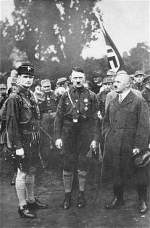
General membership meeting in Munich: New Party articles provide for unlimited power of the Fuehrer. The Party program is established as unchangeable.
[See: How Did Hitler Consolidate his Power?]1939 Various:
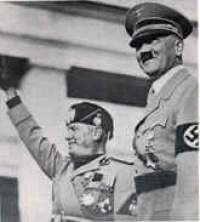
Countdown to World War II: The Pact of Steel is signed—The Axis is formed:
Italy and Germany agree to a military and political alliance, giving birth formally to the Axis powers, which will ultimately include Japan. Mussolini coined the nickname "Pact of Steel" (he had also come up with the metaphor of an "axis" binding Rome and Berlin) after reconsidering his first choice, "Pact of Blood," to describe this historic agreement with Germany. The Duce saw this partnership as not only a defensive alliance, protection from the Western democracies, with whom he anticipated war, but also a source of backing for his Balkan adventures. Both sides were fearful and distrustful of the other, and only sketchily shared their prospective plans. The result was both Italy and Germany, rather than acting in unison, would often "react" to the precipitate military action of the other. In September 1940, the Pact of Steel would become the Tripartite Pact, with Japan making up the third constituent of the triad. [Mussolini's part in the Pact, turned out to be less than steel-like.—Ed. See also How Did the Pact of Steel Effect Germany and Italy?]
Schulenburg (German Ambassador, Moscow) to Weizsäcker (State Secretary, German Foreign Office):
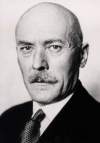
I have the honor to transmit to you as an enclosure a copy of the memorandum which gives the content and course of my interview with Herr Molotov on May 20. I have also included the memorandum with my report. The Reich Minister directed me to maintain extreme caution in my conference with Molotov. As a result I contented myself with saying as little as possible and took this attitude all the more because the attitude of Herr Molotov seemed to me quite suspicious [recht verdachtig].
It cannot be understood otherwise than that the resumption of our economic negotiations does not satisfy him as a political gesture, and that he apparently wants to obtain from us more extensive proposals of a political nature. We must be extremely cautious in this field as long as it is not certain that possible proposals from our side will not be used by the Kremlin only to exert pressure on England and France. On the other hand, if we want to accomplish something here, it is unavoidable that we sooner or later take some action.
It is extraordinarily difficult here to learn anything at all about the course of the English-French-Soviet negotiations. My British colleague, who apparently is the only one who is active in that connection here (he was being announced to Herr Potemkin when I was visiting the latter), preserves an iron silence. Even neutral diplomats have not been able to learn anything. My French colleague has been away for some time. The Counselor of Embassy and Charge in the last few days asked us for a transit visa, so that it seems that he also is going to leave Moscow soon. If the reports are correct that France will now take over the negotiations in the matter of the French-British-Soviet "alliance," these negotiations may well take place not here but in Paris. My Italian colleague is of the opinion that the Soviet Union will surrender her freedom of negotiation only if England and France give her a full treaty of alliance.
It is often stated here (I do not know whether it is correct) that one of the principal reasons for the hesitation of England in accepting the Soviet proposals for a military alliance is the question of Japan. London is afraid of driving the Japanese into our arms if she guarantees the defense of all Soviet frontiers. If Japan should come into our arms voluntarily, this consideration for England should be eliminated.
With best greetings and Heil Hitler,
I am, Herr von Weizsäcker,
Yours very respectfully,
Schulenberg.
Death: Ernst Toller: German author: In 1933, while in Germany, he was detained by the Nazis. After this incident, he was exiled from Germany. His citizenship was nullified by the National Socialist government later that year. Suffering from deep depression (his sister and brother had been arrested and sent to concentration camps) and financial woes (he had given all his money to Spanish civil war refugees), he committed suicide by hanging in his hotel room. [For further details, Click here]
1940 World War II: Various:
War in the Air: A force of 124 aircraft (52 Whitleys, 47 Wellingtons, 25 Hampdens) attack German railway lines. 3 Wellingtons, 1 Hampden and 1 Whitley lost. The Hampden was piloted by a Flight Lieutenant Coton. After being hit by flak over Germany, Coton ordered his crew to bale out. Remarkably, he was able to fly the aircraft back to England, but was shot at (and hit) again by an over-eager anti-aircraft battery on the Essex coast. The pilot safely bailed out before the aircraft finally crashed. Fifty-eight Blenheims (plus 1 on reconnaissance) attack German troops advancing to the northern French coast. Forty-seven aircraft (24 Whitleys, 12 Hampdens, 11 Wellingtons) dispatched to bomb various transport targets in France and Low Countries. Additional 35 Hampdens to bomb oil refinery at Merseburg, near Leipzig, are recalled en-route due to deteriorating weather in UK. 1 aircraft did not receive signal and continued on to bomb target. No aircraft shot down, but 3 lost in crashes. [For further details, Click here.]
Meeting in Paris—between Churchill and the French—to discuss an Allied offensive. In Britain, Parliament passes an Emergency Powers Act giving the government broad powers over British citizens and their property.
1941 Various:

Countdown to World War II: Maritime Day Message sent by FDR to all Americans:
I am glad of an opportunity to send a Maritime Day message to the American people. Today, as never before in our history, our Merchant Marine is vital to our national welfare. I do not mean vital merely in the conventional sense that it makes an important contribution but in the stranger sense that it is a crucially decisive factor in our continued existence as a free people.
If we are going to keep away from our shores the forces that have convulsed the Old World and now menace the New, the job will be done in large measure by the ships and the sailors of the Merchant Marine and by the working men who build the ships and supply them. If they fail, the whole effort fails. And earnest, hardworking Americans, who spend the best part of their lives providing for the security and happiness of those they love, know that precious security and happiness depend exactly on the success of that effort.
I know the effort will not fail; that more and faster ships will be built, manned by trained American seamen, and that they will carry through the open waters of the Seven Seas implements that will help destroy the menace to free peoples everywhere.
Experimentation on Human Beings: From a letter dated addressed to Dr. Rascher, and bearing the stamp of the Personal Staff of the Reichsfuehrer SS, and the initials, 'K Br' which initials are those of SS Sturmbannfuehrer Karl Brandt:
Dear Dr. Rascher: Shortly before flying to Oslo, the Reichsfuehrer SS gave me your letter of 15 May 1941 for partial reply. I can inform you that prisoners will, of course, be gladly made available for the high-flight researches. I have informed the Chief of the Security Police of this agreement of the Reichsfuehrer SS, and requested that the competent official be instructed to get in touch with you.
1942 World War II: Various:
President Franklin Delano Roosevelt: Statement on Maritime Day:
[This] is its first wartime observance: a fitting occasion for all of us, and the people of the United Nations, to join in a salute to our Victory fleet; to pay deserved tribute to the brave men who man the gallant ships of our merchant marine, and those other heroes without uniforms, the shipyard and factory workers. The tenth annual observance of Maritime Day bears more than ordinary significance for all the people of the Nation. At no time in our history have we been more dependent than we are now upon the productivity of our shipyards and the efficient operation of our cargo vessels. We are engaged in what is largely a war of ocean transportation. We must carry to the corners of the earth the men and materials of war; for our armed forces and for those of our allies.
A little more than a year ago we embarked upon the greatest shipbuilding program in history. No other Nation ever had attempted so vast a maritime enterprise. There were those who doubted our ability to succeed. Today I can assure you that we will perform this near-miracle of ship production. The Nation's shipbuilding capacity has been increased more than 500 percent. That of itself is an outstanding achievement. We have been, we still are, confronted with a serious shortage of ships to carry the essentials of war. Submarines and the Axis aggressors have taken a heavy toll, but that problem, like the others confronting us, is being solved. Our ships are going through, and will continue to go through in growing numbers.
The American people have reason to be proud of the heroism and patriotism of the officers and seamen of their Victory fleet. During these dangerous days and nights on the sea lanes of the world, with danger lurking above, below, and on the surface, they do not falter in the performance of their duty. Hundreds of them render service far beyond the call of duty. It is gratifying that the Congress has recognized such heroism and authorized the bestowal of proper awards to these men of the sea, who are just vital to our ultimate victory as the men in the armed forces. The Nation's maritime industry is writing a wartime preface to the most glorious chapter in our history. It is making a vital contribution to the immediate war effort, and clearing the way for America's full restoration to the position in world trade befitting so great a Nation.
Mexico enters the war on the side of the Allies.
1943 Church and Reich: The Catholic bishops of Holland forbid the collaboration of Catholic policemen in the hunting down of Jews in their country, even at the cost of losing their own jobs. (THP)
1944 World War II: Various:
The Battle of Anzio begins:
In late 1943, the Allied campaign to liberate Italy from the hands of the Germans was at a stalemate along the 'Gustave Line,' a natural stronghold of mountainous terrain stretching across the country just north of Naples. General Mark Clark, commanding the American 5th Army, ordered Operation Shingle; amphibious assaults on the beachheads at Anzio/Nettuno, north of the Gustave Line, to clear the road to Rome. Forty Thousand Allied troops of the American 5th Army, 6th Corps and the British First Infantry Division were landed on January 22, 1944. After initial success, the Allies were pinned down on the beachhead by a vastly superior German force. The Germans eventually committed 80,000 additional troops to the Italian campaign to "push the Allies back into the sea." Through bravery and heroism, the Allies held the beachhead. Finally, with long awaited reinforcements, the Allies broke out in late May and ultimately marched victoriously into Rome, the Eternal City, in June 1944. The strategic importance of the Battle of Anzio in the liberation of Italy is well documented. The campaign's contribution to the overall Allied effort in Europe, however, is often underestimated. The two German corps engaged on the Anzio front were originally destined for Normandy. The success of the Allied landings on the beaches in France in June 1944 were due largely to the tenacity of the Allied forces at Anzio. But the price of this crucial victory was high. Allied forces suffered nearly 28,000 casualties. In one measure of the courage and sacrifice of those who fought there, 23 Americans were awarded the Congressional Medal of Honor, the most of any single battle of World War II. [For further details, Click here.]
Operation Chattanooga Choo-Choo is launched:
U.S. and British aircraft begin a systematic bombing raid on railroads in Germany and other parts of northern Europe, called Operation Chattanooga Choo-Choo. The operation is a success; Germany is forced to scramble for laborers, including foreign slave laborers, to repair the widespread damage exacted on its railway network.
1945 Various:
War with Japan: US troops capture Yonabaro on Okinawa island, Japan.

Lend-Lease: President Truman reports to Congress that up to March 1945 Britain has received $12,775,000,000 under the Lend-Lease program. The Soviet Union $8,409,000,000. Reverse Lend-Lease, mostly from Britain, amounted to almost $5,000,000,000 during the same period, Truman says. [For further details, Click here.]
1946 Nuremberg Tribunal Day 136: Grand Admiral Erich Raeder's witness, Baron Von Weizsaecker, former State Secretary in the Reich Foreign Office, is cross-examined:
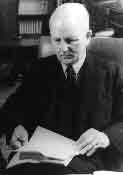
Major Jones: When did you first discover that the U-30 had sunk the Athenia?
Weizsaecker: As far as I remember, not at all during the war.
Major Jones: But I understood you to say yesterday that you thought that the publication in the Volkischer Beobachter, accusing Mr. Winston Churchill of sinking the Athenia, was a piece of perverse imagination; is that right?
Weizsaecker: Completely.
Major Jones: Are you really saying to the Tribunal that—though you were in a responsible job—are you saying to the Tribunal that you did not discover the true facts about the Athenia until the end of the war, when you were directly concerned in the Foreign Office with this matter?
Weizsaecker: I told you already yesterday what I know about this. It seems, does it not, that it was realized later by the Navy that the sinking of the Athenia was due to the action of a German submarine, but I cannot at all remember that I or the Foreign Office were informed of this fact.
Major Jones: At any rate, the Defendant Raeder took no steps to correct the information that had been passed to the American diplomatic representatives, did he?
Weizsaecker: I do not recall at all that Admiral Raeder advised me or the Foreign Office of the fact. [For the full text, Click here.]
Raeder told me that Hitler in his speech said there was a prospect of a future conflict with Poland, and that this was in contradiction to those things which he had discussed with him alone. That the speech in itself was contradictory, was the impression he expressed to me at that time. He also told me that after the speech he had had a conversation with Hitler alone during which he called his attention to the contradictions contained in the speech.
At the same time he reminded Hitler of what he had told him previously, namely that he would settle the Polish case under all circumstances in a peaceful way; and now he was considering a warlike solution possible. Hitler, he said, had reassured him and had told him that politically he had things firmly in hand. Then when Raeder asked him, or rather called his attention to this contradiction and asked him just what he really intended to do, Hitler had answered, Raeder told me, the following: "I Hitler, have three ways of keeping secrets. The first, when we two speak alone; the second, when I, Hitler, keep them to myself; the third, for problems of the future, which I do not think out to an end."
Raeder called his attention to the impossibility of a warlike conflict. To that, according to Raeder, Hitler replied: "It is as if you and I had agreed on a settlement of one mark. Now, I, Hitler, have already paid you 99 pfennig. Do you think that because of this last 1 pfennig you would take me to court?" And Raeder said "No." "You see"-Hitler said to Raeder-"I have got what I want by political means, and I do not believe that because of this last political question"-the solution of the Polish Corridor, as we called it-"we will have to anticipate a war with England. [For the complete testimony, Click here.]

1946 Wunderwaffen: A Wac Corporal, the first post-war American-designed rocket, makes its first flight, reaching an altitude of 50 miles.
[See: Wunderwaffen: Hitler's Deception and the History of Rocketry.]1947 Truman Doctrine:

With a pledge that the United States will act, as well as talk, in support of the United Nations, President Truman signed the Greek-Turkish aid bill in his emergency executive office in the Hotel Muelbach here today. He declared the legislation constituted "a vigorous effort to help create conditions of peace" in the world. The final approval of the law, which the President regards as the keystone of the Truman Doctrine to protect free peoples of the world in their right to select their own governments free of compulsion from within or without, was performed in an atmosphere of severe solemnity. [New York Times. For further information, click here.]
1948 Wunderwaffen: The Soviets, after a year or so of steady transfers, succeeds in collecting most of their captured German rocket specialists on the island of Gorodomlya, previously utilized as a biological warfare facility in the 1930's. The 234 scientists are given the task of designing a 600 km range rocket to be known as the G-1/R-10. (Menaul)
Edited by Levi Bookin (Copy editor) Click to join 3rdReichStudies Disclaimer: This site includes diverse and controversial materials—such as excerpts from the writings of racists and anti-Semites—so that its readers can learn the nature and extent of hate and anti-Semitic discourse. It is our sincere belief that only the informed citizen can prevail over the ignorance of Racialist "thought." Far from approving these writings, this site condemns racism in all of its forms and manifestations.
levi.bookin@gmail.com








Fair Use Notice: This site may contain copyrighted material the use of which has not always been specifically authorized by the copyright owner. We are making such material available in our efforts to advance understanding of historical, political, human rights, economic, democracy, scientific, environmental, and social justice issues, etc. We believe this constitutes a "fair use" of any such copyrighted material as provided for in section 107 of the US Copyright Law. In accordance with Title 17 U.S.C. Section 107, the material on this site is distributed without profit to those who have expressed a prior interest in receiving the included information for research and educational purposes. If you wish to use copyrighted material from this site for purposes of your own that go beyond 'fair use', you must obtain permission from the copyright owner.
Please Note: The list-owner and moderators of 3rdReichStudies are not responsible for, and do not necessarily approve of, the random ads placed on our pages by our web server. They are, unfortunately, the price one pays for a 'free' website.